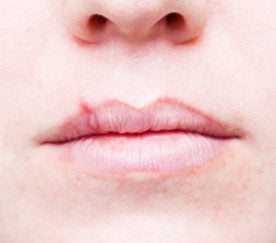How to Get Rid of Cold Sores
Many people eventually become infected with the virus that causes the unsightly and painful lip blisters called cold sores. Using antioxidants, immune boosters, and especially the amino acid lysine, you’ll have the tools to inhibit the virus and help heal the inflamed skin.

What Cold Sores Are
Cold sores are fluid-filled blisters that usually appear on the lips, though they can also develop on the gums, inner cheeks, roof of the mouth, or the area around the nostrils. In addition, the cold sore virus can spread by touch to the mucous membranes of the eyes, nose, and genitals-or to abrasions. Typically, cold sores (also called fever blisters) break and then form a scab, disappearing in a week to ten days.
What Causes Cold Sores
Cold sores are usually caused by herpes simplex type 1 virus (HSV-1). This virus is different from the one responsible for genital herpes-herpes simplex type 2-which is generally transmitted through sexual contact. Because the cold sore virus lies dormant in nerve cells after the first outbreak, new sores are likely to recur as frequently as every few weeks or as infrequently as every few years. Sores often reappear when the immune system is depressed by a fever or a viral infection such as a cold. Recurrences can also be triggered by fatigue, menstruation, stress, or exposure to sun and wind.
How Supplements Can Help
The supplements listed can all help minimize outbreaks and speed healing. They should be used in combination at the first sign of a cold sore. Effects will be noticed in two or three days.
Most useful is the amino acid lysine which, when taken orally, suppresses the growth of HSV-1; in cream form, lysine can be applied directly to the sores. It’s fine to use long term and may help prevent cold sores from forming. Also effective is a melissa cream made from the potent antiviral herb Melissa officinalis; use at the first sign of tingling.
Vitamin C and flavonoids may help as well. As powerful antioxidants, they work to facilitate healing by eliminating naturally occurring, cell-damaging compounds known as free radicals; both also boost virus-fighting immune system cells. Vitamin A and selenium have antioxidant properties too. Along with flaxseed oil, they hasten the healing process by promoting cell renewal. (Vitamin A is also available in topical form; apply it directly to sores, alternately with vitamin E oil.) Flare-ups may be treated with the immune-enhancing herbs echinacea and goldenseal, which are natural antivirals and antibiotics.
| Lysine | Dosage: 1,000 mg 3 times a day for flare-ups, then 500 mg a day. Comments: Take on an empty stomach; don’t take with milk. |
| Melissa cream | Dosage: Apply cream to sores 2-4 times a day. Comments: This herb is also called lemon balm. |
| Vitamin C/Flavonoids | Dosage: 1,000 mg vitamin C and 500 mg flavonoids 3 times a day. Comments: Use for flare-ups; reduce dose if diarrhea develops. |
| Vitamin A | Dosage: 25,000 IU twice a day for 5 days. Comments: Women who are pregnant or considering pregnancy should not exceed 5,000 IU a day. |
| Echinacea/Goldenseal | Dosage: 200 mg echinacea and 125 mg goldenseal 4 times a day. Comments: Sold singly or as combination supplement. |
| Selenium | Dosage: 600 mcg a day only during flare-ups. Comments: Don’t exceed 600 mcg daily; higher doses may be toxic. |
| Flaxseed oil | Dosage: 1 tbsp. (14 grams) a day. Comments: Can be mixed with food; take in the morning. |
To prevent cold sore recurrences, take a maintenance dose of 500 mg of lysine a day. (However, if you’re using lysine long term, be sure to add an amino acid complex to provide a balanced mix of amino acids.) In addition, it’s beneficial to alternate herbs: Try echinacea (200 mg a day); astragalus (200 mg a day); or a mixture of reishi (1,500 mg a day), shiitake (1,200 mg a day), and maitake mushrooms (600 mg a day). Take one herb for a week, then switch to another, and finally to the third.
Other Cold Sore Remedies
- Apply sunscreen (SPF 15 or higher) to the lips to prevent recurrences. In a study involving people with recurrent cold sores, those who didn’t use sunscreen developed a cold sore after 80 minutes in the sun.
- Don’t touch the blisters. This can spread the virus, as can sharing personal items such as towels, razors, drinking glasses, or toothbrushes.
- Try meditation, yoga, or other forms of relaxation to reduce stress, which is thought to precipitate cold sores.
- Stay away from nuts, chocolate, whole-grain cereals, and gelatin. They contain a large amount of the amino acid arginine, which some doctors think triggers cold sores. Lysine may counteract its effect.



